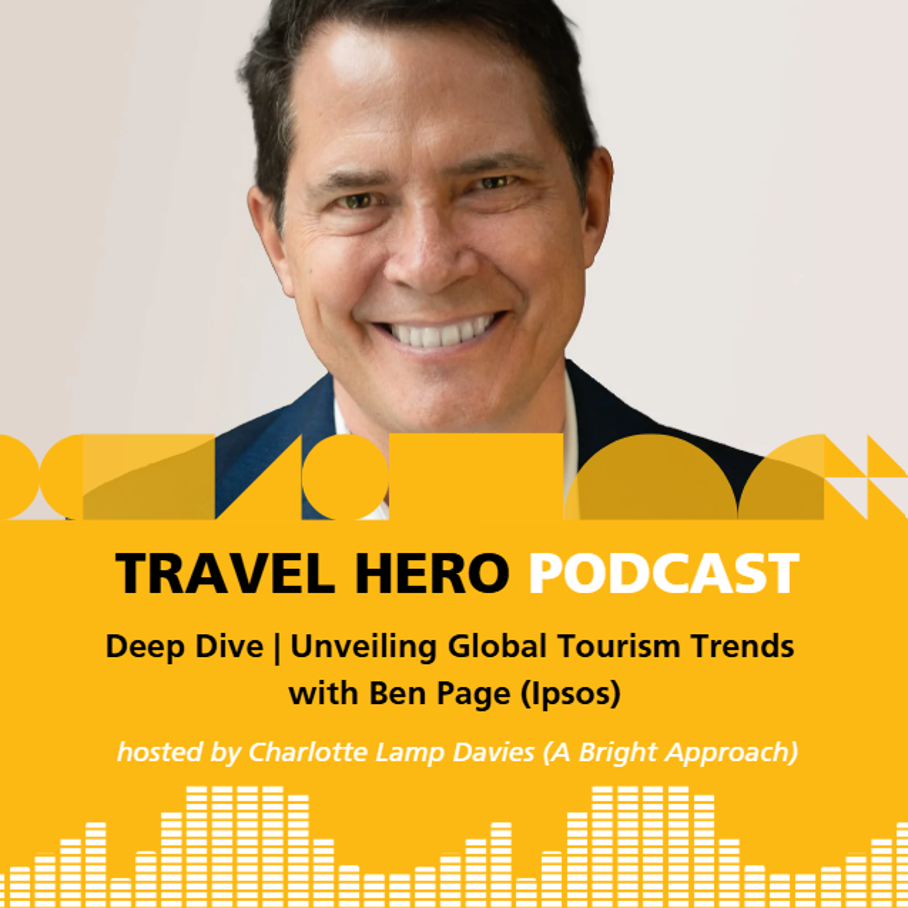Page content
How social change affects individual decisions in the travel industry
Page has been with the company for 37 years and entered market research more or less by chance. During his studies, he managed a nightclub on the university campus, and afterwards moved to London with a similar idea in mind. However, he initially took on a job as an interviewer, and the company he joined expanded rapidly. Today it has no fewer than 20,000 employees. Every year, Ipsos publishes a comprehensive consumer report. You can listen to the podcast episode in full here.
Social trends and their impact on the travel industry
Asked about the report’s approach, Page began by explaining how global trends ranging from climate change to AI influenced individual people’s decisions in the travel industry. Based on a vast amount of data, the company was able to identify trends in changing consumer behaviour at an early stage, he said.
One prominent social trend, for example, was people’s increasing need for security – another one was their desire for mental health. The growing desire for physical and mental health was reflected in around 62 per cent of people worldwide wanting to lose weight, regardless of whether they succeed or not. Cancer and cardiovascular diseases were currently the main causes of death, he added.
As in other areas of their lives, many people wanted to experience well-being on their travels. He suggested that hotels for example could play more relaxing music, while airlines could offer in-flight meditation to passengers.
In addition to mental health, people also had a strong desire to be in control. It was no coincidence that the slogan driving Brexit was ’Take back control’. In that context, hotels for example could give guests more control over their room temperature. They could conceivably even use AI to read social media to see which whisky a guest preferred or what they would like in the minibar.
Greenwashing and the responsibility of brands
The two Travel Hero participants also talked about greenwashing and how it could be avoided. Page appealed to airlines, for example, not to describe themselves as sustainable if this was simply not the case. With regard to consumers, he noted that although everyone knew it was possible to save the world, people had a huge desire to travel, against which their better knowledge was powerless. Instead, they saw policymakers and companies as having a duty to take responsibility. It was therefore important for brands to convey a good feeling.
With the new year around the corner, the conversation turned to January, the busiest month for bookings. In that context, the Ipsos CEO pointed out that a large proportion of global research was carried out by women, which was important for marketing experts. OTAs also played a major role in the tourism value chain, as they provided a huge amount of data on online access and were therefore very important for the industry, he added.
After briefly talking about social media strategies and target audiences, something that companies were expert at managing with their own data analyses, Charlotte Lamp-Davies asked her guest about the aspects of this year's report that surprised him most.
In addition to people’s desire for mental health, and against a backdrop of social pressure, culture wars and price rises, the research expert said that people would increasingly tend towards brands that shared their values. Consumers also expected brands to clearly position themselves on social and even political issues. Even if one had an excellent product, nowadays one also had to give customers the feeling of being on their side.
Click here to listen to the podcast in full, or click on Play below

.svg)

